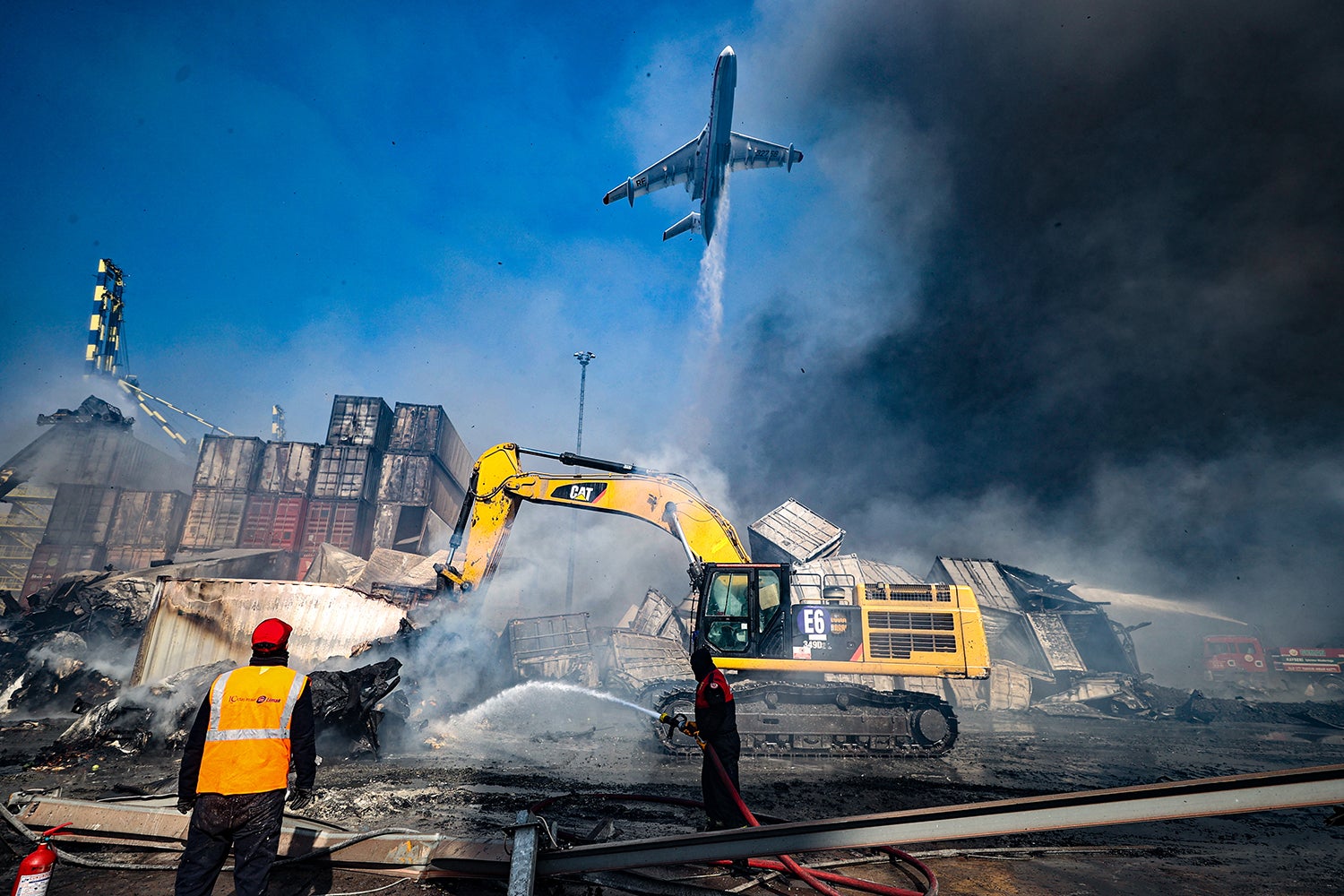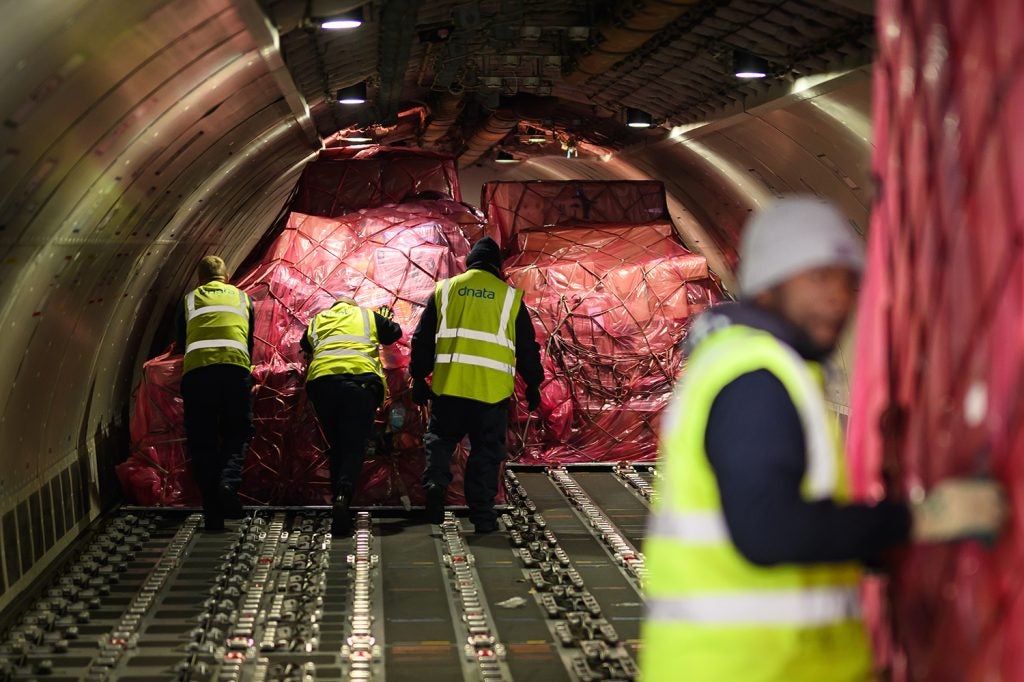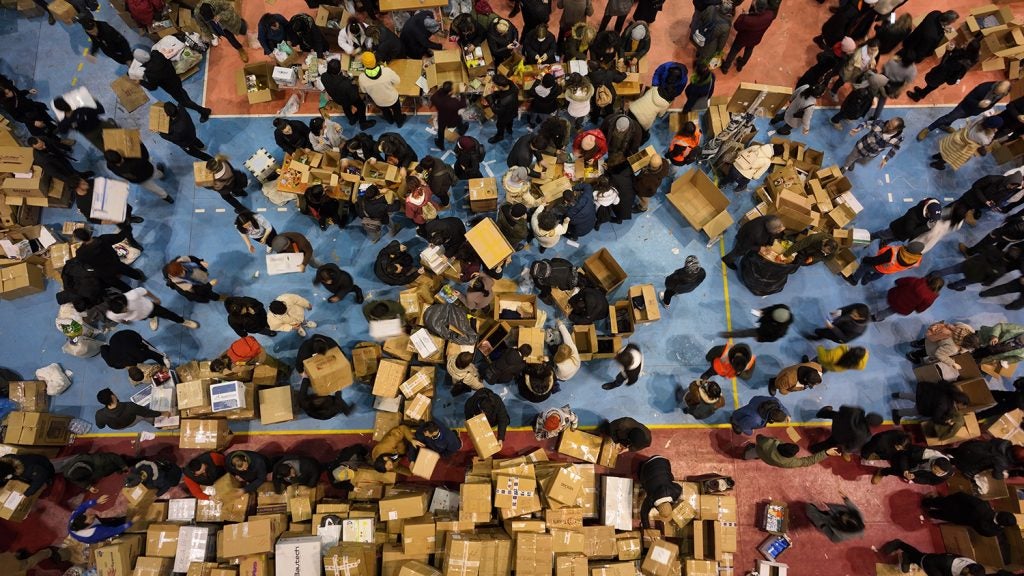
On 6 February 2023, a powerful 7.8 magnitude earthquake struck close to Turkey’s border with Syria, with another earthquake of similar strength striking hours later. Then, just two weeks later, a third 6.3 magnitude earthquake hit southern Turkey.
According to the Disasters Emergency Committee (DEC), over 50,000 people have died, 214,000 buildings have been damaged or destroyed, and over 18 million people have been impacted, with many urgently needing food, shelter, and medical aid.
The humanitarian need in response to these earthquakes is massive, and aviation is playing a significant role in facilitating it.
The emergency response
Airlink is a non-profit disaster response organisation that specialises in the coordination and movement of responders and humanitarian aid. It provides free air transport in the form of tickets for responders and air cargo space to a network of 150 non-governmental organisations (NGOs) operating globally. The aim is to ensure that transport costs are not a barrier to NGOs responding to disasters.
“We are a demand-led organisation, fulfilling the needs of NGOs for transport so they can fulfil identified needs on the ground,” says Steve Smith, Airlink President and CEO.
“This typically means that Airlink is responding to a disaster in the immediate aftermath and over the medium and long term, as deployments and aid refocuses on recovery.”

US Tariffs are shifting - will you react or anticipate?
Don’t let policy changes catch you off guard. Stay proactive with real-time data and expert analysis.
By GlobalDataWithin a few hours of the call for international assistance by the Turkish and Syrian authorities, Airlink had activated its regional response plan. These plans help form the nucleus of a coordinated response involving airlines, donors and NGOs from which Airlink can build and expand aid deliveries as more and more organisations enact their reaction plans.

“We were talking to NGOs looking to move responders and working out how to support those movements within 12 hours of the disaster,” explains Smith. “Within 48 hours, Airlink had facilitated the deployment of Search and Rescue teams and specialised disaster response personnel.
“For example, we sent a team of ten search and rescue and medical volunteers for our NGO partner CADENA. Just this one team saved two lives and provided over 3000 hours of volunteer service to communities in Turkey.”
Airlink provided more than 173 responders with flights in February and March, in addition to having moved 730 tonnes of humanitarian supplies. Airlink still has over 290 tonnes in the pipeline and continues to need donations to transport this aid.
The role of aviation
UK-based global air charter specialist Chapman Freeborn has also played a significant role. Its emergency response team was activated within hours of the disaster as it started to receive requests for both passenger and cargo requirements.
The Chapman Freeborn team immediately looked into the best airports in Turkey and Syria to support the efforts of its clients, contacting Civil Aviation Authorities and ground handling companies.
With immediate effect, its humanitarian teams were also in contact with multiple operators in the Middle East and Europe, to ascertain what capacity would be available as soon as cargo requests came in.
“To date, we have operated in excess of 45 flights for cargo, plus multiple flights for various government emergency response teams,” says Neil Dursley, CCO at Chapman Freeborn.
“I believe there is no more supportive industry than aviation.”
Chapman Freeborn’s team navigated Syria’s embargoes and closed borders to ensure the aid reached the people who needed it most, coordinating its onward passage too. The team gained the necessary land permits, flyover rights, and approvals from the Syrian Civilian Aviation Authority and the Syrian Ministry of Foreign Affairs, resulting in thousands of tonnes of aid reaching the population.
“Aviation plays a critical role in the logistical support of natural disasters. Typically, national carriers of the affected countries prioritise availability in support of their civilians,” adds Dursley.
“Ground handling companies work around the clock to ensure urgent freight is loaded and offloaded in a timely manner to guarantee delivery to the victims as quickly as possible. This disaster was no different, and we worked closely with Turkish Airlines Cargo, MNG, and Pegasus Airlines.
“Our airline partners supported us and kept pricing very low due to the emergency situation, and our parent company Avia Solutions Group donated financial support. I believe there is no more supportive industry than aviation.”
A change in needs
There will be a considerable need for humanitarian aid for some time to come, likely well into 2024 and beyond as priorities shift and new challenges arise.
At the start of the emergency response, the key demand was for search and rescue teams – this then moved to tents and winter kits, and now clean drinking water is a key concern. The latter is vital for preventing the spread of waterborne diseases, which can devastate populations and impact children acutely.
“73% of the average cost of a humanitarian aid program is accounted for by supply chain management – in other words, transport,” says Smith.
Many NGOs, especially smaller ones, Smith explains, don’t have specific logistics budgets or dedicated logistics teams.

“There is no pot of money, whether from governments or foundations, to support transport costs,” he says.
“For example, in response to the crisis in Ukraine, one organisation was given a generous donation of 116,000 pairs of winter boots, which would cover about 25% of the total need in Ukraine. However, they didn’t have the budget to fly the shipment, and sending it by sea would miss the winter deadline. So, they turned to Airlink for support.
“The aviation sector’s willingness to answer the call to care for others is inspiring,” concludes Smith. “Airlink’s aviation partners are crucial, and without their support, we couldn’t achieve any of what we do. They have a vital role to play in aid delivery.”



